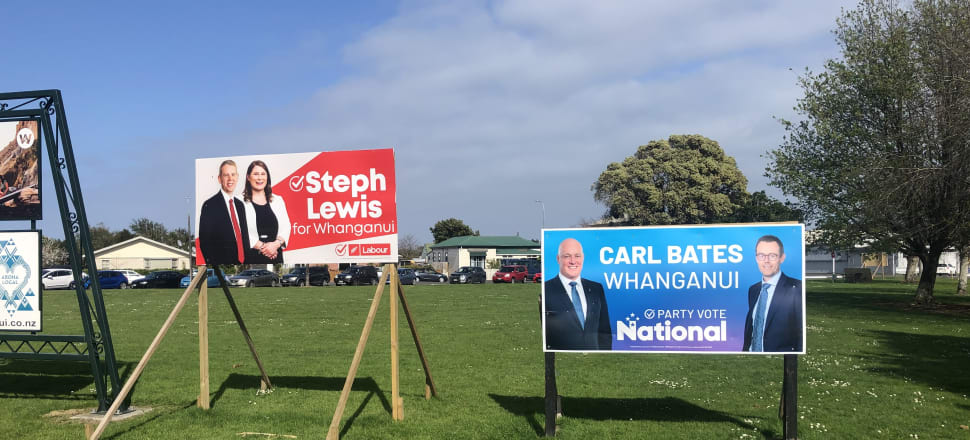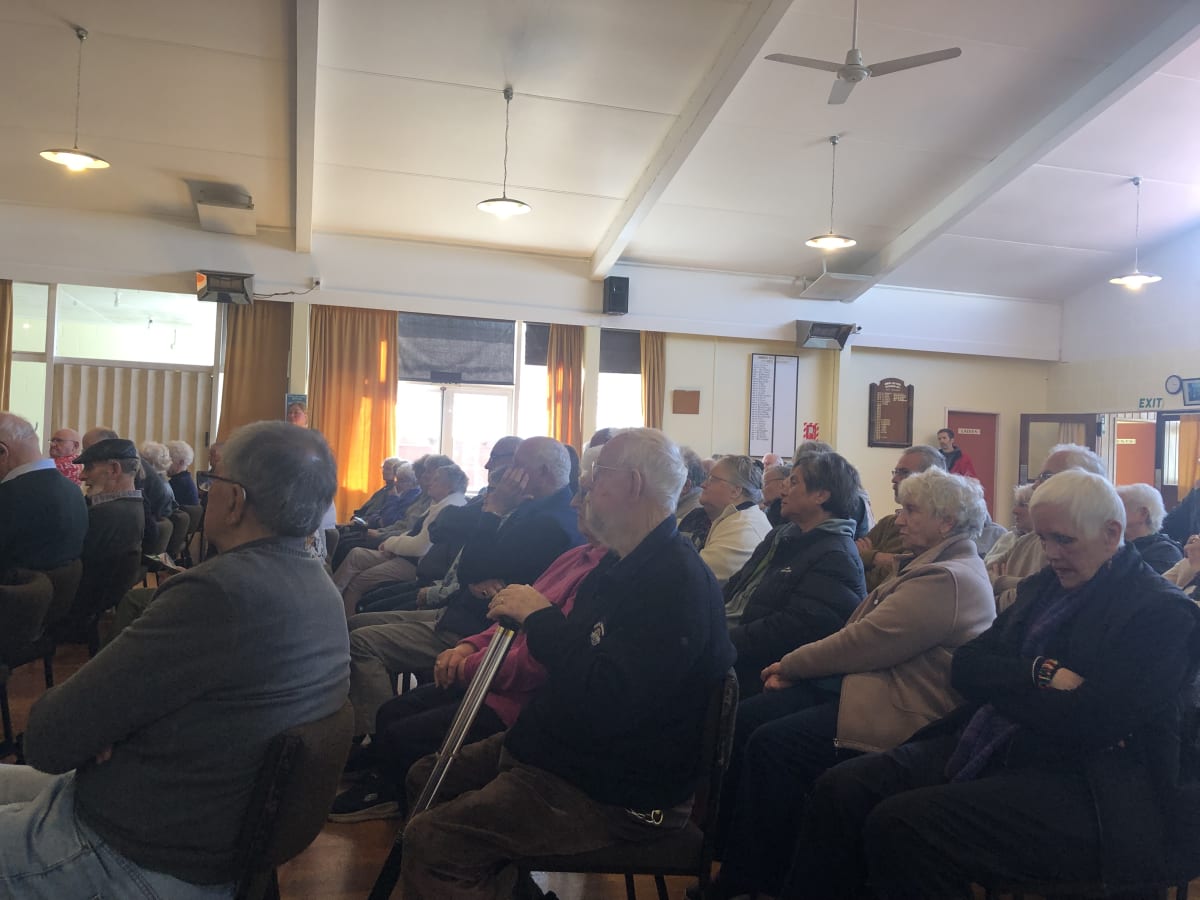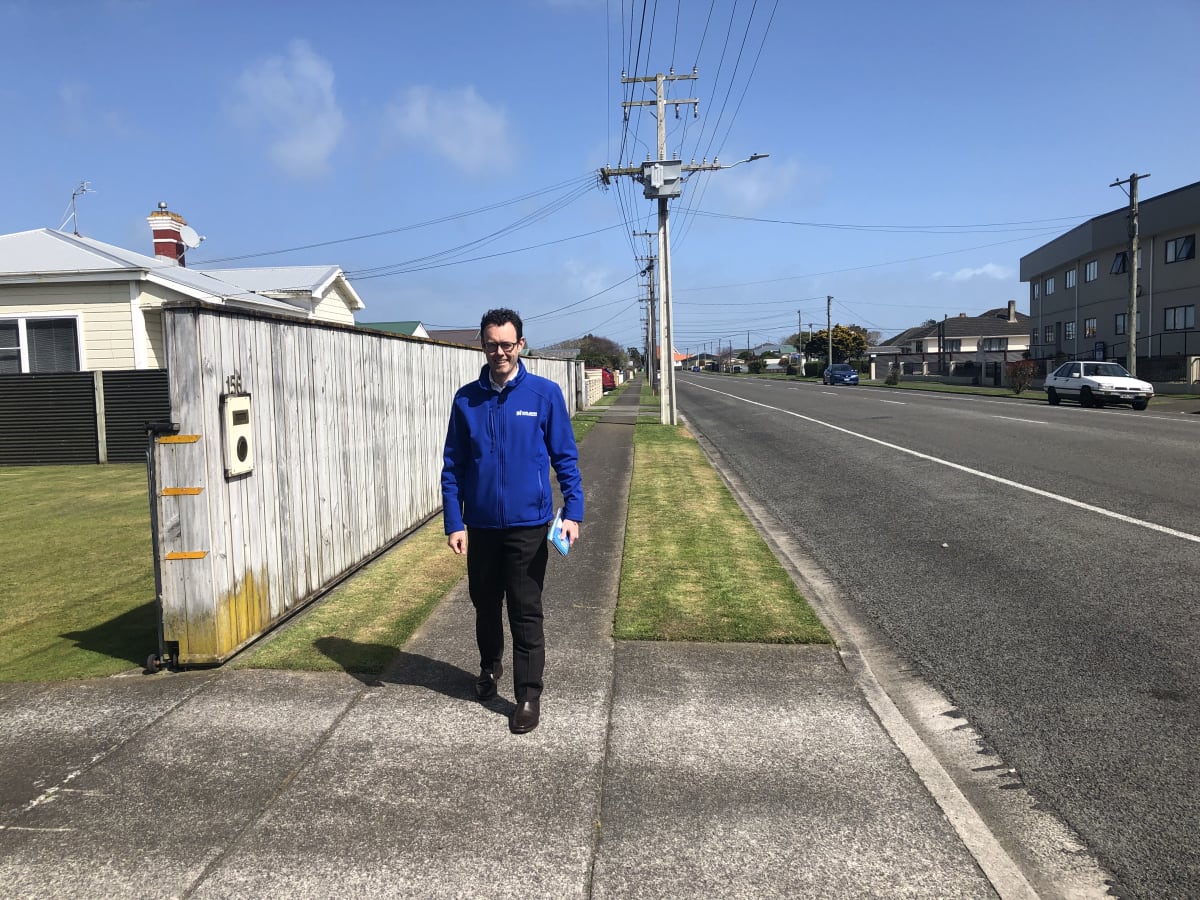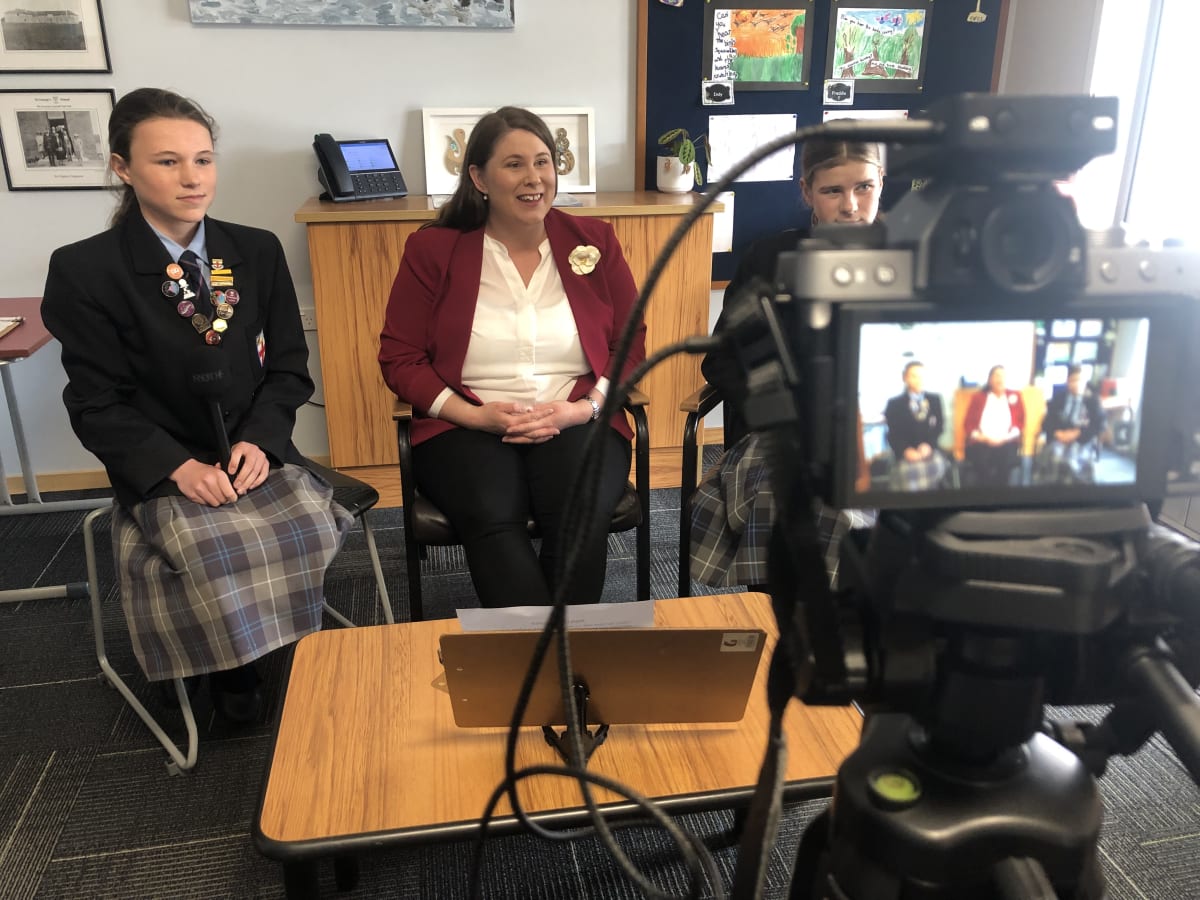
Candidates vying for the Whanganui electorate are clocking up the miles as they attempt to get as much face time with voters before polling day
About 100 people turned out to the Hāwera Senior Citizens Hall on a sunny weekday morning.
The candidates for Act and New Zealand First were last-minute cancellations, leaving Labour’s Steph Lewis, National’s Carl Bates and the Greens’ Marion Sanson to face a lively crowd.
Hosted by South Taranaki Grey Power the crowd was under strict instruction by the branch secretary to keep questions to the point – “we don’t want your life story”, and “no heckling”.
“Oh, party pooper”, quipped a woman with a walker in the back row.
READ MORE: * Electorates to watch: the battle for Northland * National dips in new poll, but no Labour bump
It might not have been the biggest crowd or the fanciest set-up but face time in the local electorate is paramount for both, relatively unknown, candidates, and they're making the most of any opportunity.
Lewis, a first-term MP raised in Waverley, took the seat convincingly from National’s Harete Hipango in 2020. Before that it had been blue under Chester Borrows since 2005.
Hipango is instead contesting the local Māori seat – Te Tai Hauāuru. Newcomer Carl Bates, who recently returned from South Africa, is attempting to flip the switch back to National.
Both grew up in the region, and both now live here with their own young families.
Despite the crowd being predominately retirees and the elderly, the first question came from a small business owner (who gave a two and a half minute “life story” before being grumpily prodded to get on with it) who wanted to know what new taxes were on the cards, and why people “who work bloody hard for our money”, were having such a tough time.
That feeling is acute in Whanganui – 30 percent of the electorate aged 15 and over work in either manufacturing or agriculture, forestry and fishing.
Recent GDP data shows agriculture, forestry and fishing was down 2.3 percent on the previous quarter and down 3.2 percent annually. Similarly manufacturing only lifted slightly in the June quarter (0.9 percent) after five consecutive quarters of decline, and was down 2.3 percent annually.

It’s a tough sell for the incumbent, Lewis, who acknowledges times are tough but confirms the only new taxes under Labour are the new top tax threshold for people earning over $180,000 per year, and a new higher trusts tax threshold.
She reminds the woman of the fiscal support during Covid-19, including support that got a lot of previously offline businesses online.
“I accept that times are challenging, but the best thing we can do for you right now is to continue to bring inflation down. Treasury is independent of government and they say we will be back down to within the target range of inflation by this time next year. So that will reduce your costs.”
“But it's not going to reduce your costs if we gave a quick sugar hit to the economy through tax cuts which will then cause inflation to go up again,” said Lewis, taking the opportunity to start the barbs against Bates.
“Like many of you are probably unwilling to be lectured by the Labour Party on sugar hits to the economy,” Bates replied.
Cheers from the audience followed – they wanted answers, but they were also hoping it would get a bit scrappy.
And so it continued, the audience wanted to know from Sanson why workers should get five weeks' annual leave. “When I was working we had two weeks' holidays”, one man said.
Not impressed by the idea of the Greens' wealth tax either, the crowd tutted and groaned when that was mentioned. “There's a lot of people who are rich, because they've worked hard in their formative years,” the same man said.
There were concerns about pressure on local government leading to rates hikes, access to doctors (a months-long wait time in Hāwera), the state of the roads, and why the rail lines in the region were not being used more.
After the meeting, sandwiches, cakes and cups of tea were rolled out and everyone could take a breather.
Both Lewis and Bates were pleased with how it went, both got in their party lines and a few prods at the other, and both stuck around for a cuppa.
It’s important face time with the community which, though a large town in the electorate, is still an hour's drive from Whanganui itself.

Making the most of the time in Hāwera, Carl Bates knocked on doors later that afternoon, telling Newsroom he’s clocked about 8000 houses so far.
He says there's definitely a mood for change.
His door manner is well-oiled, he's introducing himself, assuming he won’t be known, and he asks if people have anything they want him to know.
It’s a surprisingly high hit rate for a weekday, people tend to be surprised by the visit, but are polite even if they decline a flyer.
“Don’t vote, don’t like any of them,” one man says before we even get to the intro.
“Fair enough, have a good day,” Bates replies with a smile.
But others have plenty to say – there's concerns about co-governance (“we’ll reverse that”, says Bates), cost of living is up there, and when there’s not much to say Bates prompts them with a: “do you think it’s time to change the government?” and most say yes.
He rates his chances.
"We're getting a lot of lifelong Labour supporters tell us I've always voted Labour but this year it’ll be different."
Back down in the main centre Lewis admits in some ways it’s a tough time to be campaigning as the incumbent, but is proud of the “runs on the board” she’s got for the electorate and what Labour has done.
She refers to the Government’s health reforms, which she says will make a huge difference to access for her electorate, the rollout of 5G to rural communities to help them be better connected, securing funding for the Whanganui Port redevelopment and chairing the primary production select committee.
There are also local issues such as securing a bike park in Stratford via the Government's shovel-ready fund, and the opening of a new secondary school in Hāwera earlier this year.
She says the campaign has not meant her electorate MP duties have gone anywhere either.
“You've still got a job to do, and that’s a tricky balance because I still have constituents who come through my doors, because that stuff doesn't stop just because there's a campaign on.”

Out hitting the streets in Whanganui East with Lewis later that day, access to healthcare, education and cost of living are the main topics she canvasses with voters.
She says co-governance does come up a bit, but mostly people just didn’t understand it.
“When I tell them it’s just partnership, and give them some tangible examples, like the port here … which has actually won an award for its partnership with iwi, then they get it,” she says.
One woman is polite, but admits she’s upset over Labour’s decisions on vaccine mandates during Covid-19.
Another is ecstatic to meet Lewis: “oh it’s like a celebrity,” she gushes.
“Just keep doing the best you can... our ambition is to keep the blue out.”
During the walk Lewis gets a call from her son’s daycare – he's sick and needs to be picked up.
Then a staff member calls for advice on helping a constituent, and there are plans being confirmed for a community event later that evening.
“Yea, this is the juggle,” she laughs.







